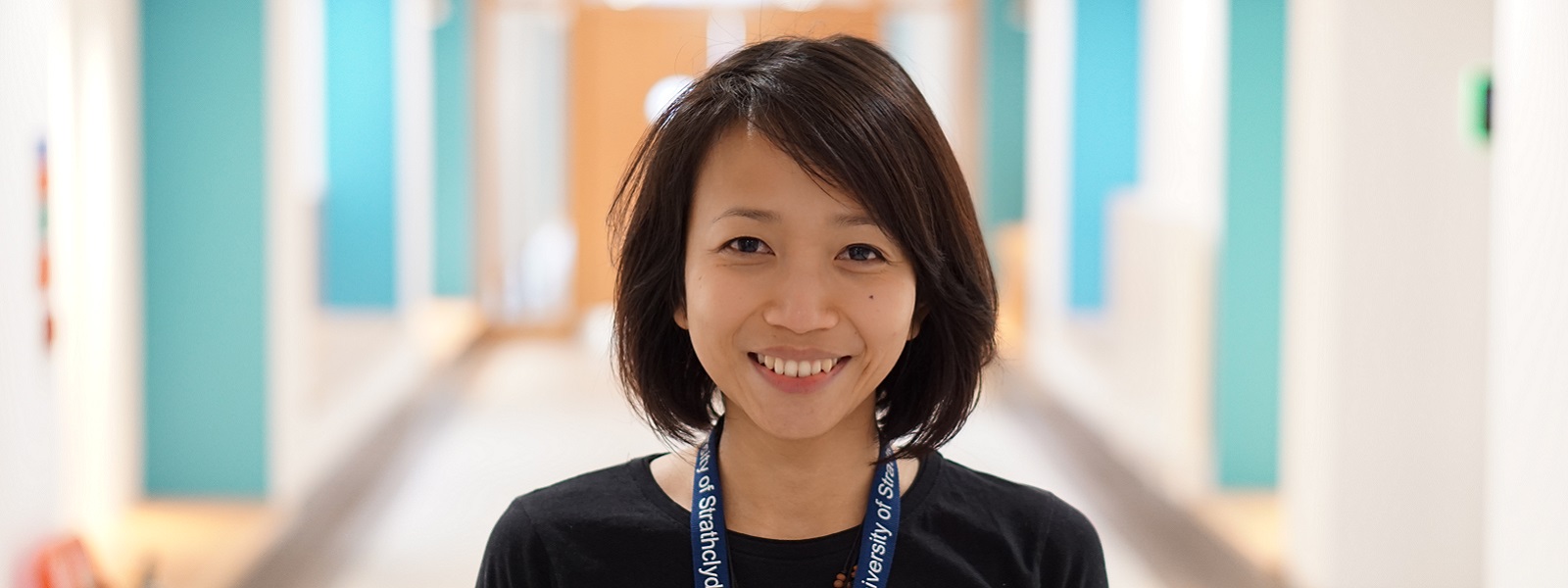Tiffany arrived at Strathclyde to study a PhD in Design Management. Find out more about her research and her thoughts on life at Strathclyde.
Tell us a little about your background prior to coming to study with DMEM:
I did my bachelor’s degree in Industrial Engineering at The Institut Teknologi Sepuluh Nopember (Tenth November Institute of Technology) Surabaya, Indonesia. I was keen to continue my education after I went to Europe with my family. The opportunity to study became available when I was awarded an Erasmus Mundus scholarship to study the MSc in Global Innovation Management for two years. The first year was spent at the University of Strathclyde, within DMEM and the second one at Aalborg University, Denmark, where I did a year’s internship in a multinational company, specialising in boiler technology for marine-ships.
Why did you choose to study at DMEM?
When I studied the MSc in Global Innovation Management, DMEM was the host university. During my studies, I learned a few things about the department that brought me back to begin a PhD with the department: firstly, the department is unique, beside its wide-range of expertise, it offers students the opportunity to work with industry and put the theory that you learn in to practice. Secondly, the diversity in the nationality of students and lecturers offers a different kind of experience.
Why did you choose to study your course?
I have more interest and passion for the field of social/management design rather than technical engineering. However, having a bachelor’s degree in Industrial Engineering and four years of work experience as an engineer, I do not want to abandon the technical field completely. Design management offers the right combination that perfectly suits my passion and interests.
Have you faced or overcome any challenges or obstacles in the pursuit of your studies and/or career?
I have faced three major challenges while studying here. Firstly, English is not my first language. I can speak fluently but writing in academic English is very challenging. Secondly, in my country we are not trained to think critically, sometimes criticising is considered rude. Studying here at Strathclyde, we are encouraged to be critical and initially I struggled a lot to write a literature review because of this. Lastly, working in an international environment you have to deal with culture differences. It takes time to get along with people and understand different behaviours and cultures.
What have been the highlights of your course to date?
Studying for a PhD is tougher than I thought. It really tests my endurance and pushes me to my limit. However, I believe that having a very engaging and encouraging supervisor is key to survival and I am very grateful that I have been lucky enough to have that kind of supervisor.
Through DMEM, I also had the opportunity to chair workshops in a multi-national company and at an international design conference to evaluate the model that I have developed as part of my PhD. It was my first experience chairing a (relatively) big international group by myself, and having done it successfully it significantly increased my confidence levels.
What are your ambitions following the completion of your course?
I would like to work in a multi-national company in the UK or US for the next ten years (maybe more) before returning to my home country. My experience living abroad so far has been extremely positive in terms of my own personal development and I don’t wish to stop now.
In the long term, I dream of having my own business that combines consultancy in management and charity work in order to achieve my ultimate goal of serving humanity.
What advice would you give to someone considering coming to study at the department of Design, Manufacturing and Engineering Management?
Be positive and open minded, work hard and enjoy! It is tough to live outside your comfort zone, being surrounded by strangers with different background, culture, and languages. It is normal to initially experience culture shock. Only by being positive, can you adapt faster and enjoy your new adventure! Work hard because you come here to study and there is so much to learn in a short period of time. If English is not your first language, you might need to work even harder.
Nonetheless, do not forget to enjoy yourself and have lots of fun. Experience the culture, travel around, go to social events and meet new people. You might find not only new friends here but new family.
